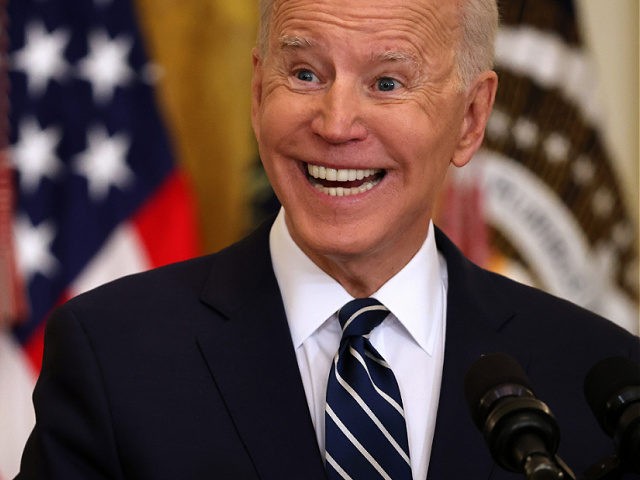Four Republican members of Congress plan to meet President Joe Biden and Vice President Kamala Harris Monday to discuss his $2.5 trillion proposed spending plan.
The White House announced Sunday Sens. Roger Wicker (R-MS) and Deb Fischer (R-NB) would meet with the president and Reps. Don Young (R-AK) and Garret Graves (R-LA).
Sens. Maria Cantwell (D-WA) and Alex Padilla (D-CA) will represent Democrats at the meeting as well as Reps. Don Payne (D-NJ), and David Price (D-NC).
Biden has not signaled any major changes to his massive spending proposal, as Republicans continue questioning the lack of spending on actual infrastructure projects.
The Senate Republican Conference released a memo Monday condemning Biden’s bill as a “partisan, job-crushing slush fund” noting just five percent of the proposed spending bill would be used for roads and bridges.
Even including a broad definition of infrastructure, including improvements of water systems, power grids, highways, roads, bridges, airports, broadband internet, and ports only make up roughly 25 percent of the bill’s spending.
But Biden expressed optimism Friday more Republicans would join his multi-trillion spending plan.
“I think we’re going to be able to get — I’m hoping we will have some bipartisan support across the board,” he said at the White House Friday.
Biden said he had spoken with congressional Republicans about his bill and would continue to listen to ideas from both parties.
“We’re going to work on seeing if we can get some bipartisan support across the board here,” he said.
Republicans widely view Biden’s proposed meetings as theater, as he has failed to signal any major compromise.
On Wednesday, Biden defended billions of dollars of proposed spending on climate change initiatives, health care, and affordable housing.
“The idea of infrastructure has always evolved to meet the aspirations of the American people and their needs, and it’s evolving again today,” he said.

COMMENTS
Please let us know if you're having issues with commenting.